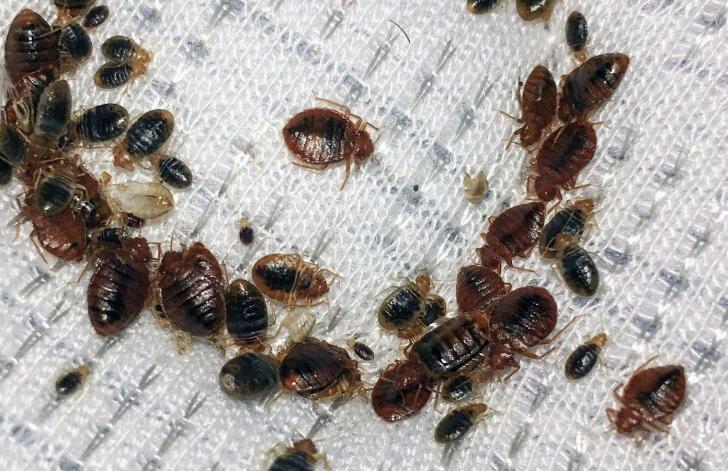News / National
Councils dismiss bedbug social media reports
11 hrs ago | Views

Three local authorities in Zimbabwe's Midlands Province - Redcliff Municipality, Kwekwe City Council, and Gweru City Council - have dismissed recent social media reports alleging a bedbug (insikizi/tsikidzi) outbreak in their jurisdictions, assuring residents that there is no cause for alarm and that pest control measures are actively underway.
Contrary to circulating claims of infestations in Kwekwe's Mbizo 7 and Amaveni suburbs, officials from all three councils confirmed that their areas remain free of bedbugs. The rumors appear to have been sparked by confirmed cases in parts of Harare, notably in the Mbare suburb, which heightened national concern and vigilance.
Kwekwe Town Clerk, Dr. Lucia Mnkandla, reassured the public, stating, "We no longer have major issues with bedbugs. Extensive fumigation has been conducted in Mbizo and Amaveni suburbs. We are also rolling out community awareness programmes to encourage home renovations and improved hygiene standards."
Kwekwe Mayor, Councillor Albert Zinhanga, acknowledged isolated bedbug reports in certain pockets of Mbizo 7 and Amaveni but emphasized the situation remains under control. "There is no need for panic. Our health department is conducting continuous fumigation in affected areas. Kwekwe remains safe, and the public should disregard false claims of a widespread outbreak," he said.
In Redcliff, municipal spokesperson Michael Magoronga confirmed no verified bedbug cases have been recorded, but stressed that proactive fumigation is being carried out. "Following confirmed outbreaks elsewhere in the country, we've intensified fumigation and community awareness efforts. Residents are urged to report any suspected cases promptly to clinics or the municipality," he added.
Gweru City Council (GCC) also reports no bedbug infestations but remains vigilant. Pest control teams are assessing risk areas, particularly in Mtapa, Ascot, and Mambo high-density suburbs. GCC spokesperson Vimbai Chingwaramusee said, "We have a contingency fumigation programme in place and continue educating residents on prevention. Although no cases have been detected, we are not taking any chances."
She further explained that bedbugs typically spread through clothing seams, luggage, bedding, and furniture. "Maintaining hygiene and reducing clutter are key to prevention," Ms. Chingwaramusee advised.
Bedbugs are small, reddish-brown parasites that feed on human blood, mostly at night. While they do not transmit diseases, their bites can cause severe itching, allergic reactions, and secondary infections. Chronic infestations may lead to anaemia due to blood loss, especially among vulnerable groups.
Signs of infestation include red itchy welts, small blood stains on bedding, a musty odour, and visible bugs or shed skins in mattress seams or crevices.
Health officials recommend preventive measures such as inspecting second-hand furniture and clothing, washing clothes at high temperatures, using bedbug-proof mattress covers, and regular vacuuming and decluttering of living spaces.
Authorities urge residents to remain calm and cooperate with ongoing pest control efforts to maintain a safe and healthy environment.
Contrary to circulating claims of infestations in Kwekwe's Mbizo 7 and Amaveni suburbs, officials from all three councils confirmed that their areas remain free of bedbugs. The rumors appear to have been sparked by confirmed cases in parts of Harare, notably in the Mbare suburb, which heightened national concern and vigilance.
Kwekwe Town Clerk, Dr. Lucia Mnkandla, reassured the public, stating, "We no longer have major issues with bedbugs. Extensive fumigation has been conducted in Mbizo and Amaveni suburbs. We are also rolling out community awareness programmes to encourage home renovations and improved hygiene standards."
Kwekwe Mayor, Councillor Albert Zinhanga, acknowledged isolated bedbug reports in certain pockets of Mbizo 7 and Amaveni but emphasized the situation remains under control. "There is no need for panic. Our health department is conducting continuous fumigation in affected areas. Kwekwe remains safe, and the public should disregard false claims of a widespread outbreak," he said.
In Redcliff, municipal spokesperson Michael Magoronga confirmed no verified bedbug cases have been recorded, but stressed that proactive fumigation is being carried out. "Following confirmed outbreaks elsewhere in the country, we've intensified fumigation and community awareness efforts. Residents are urged to report any suspected cases promptly to clinics or the municipality," he added.
Gweru City Council (GCC) also reports no bedbug infestations but remains vigilant. Pest control teams are assessing risk areas, particularly in Mtapa, Ascot, and Mambo high-density suburbs. GCC spokesperson Vimbai Chingwaramusee said, "We have a contingency fumigation programme in place and continue educating residents on prevention. Although no cases have been detected, we are not taking any chances."
She further explained that bedbugs typically spread through clothing seams, luggage, bedding, and furniture. "Maintaining hygiene and reducing clutter are key to prevention," Ms. Chingwaramusee advised.
Bedbugs are small, reddish-brown parasites that feed on human blood, mostly at night. While they do not transmit diseases, their bites can cause severe itching, allergic reactions, and secondary infections. Chronic infestations may lead to anaemia due to blood loss, especially among vulnerable groups.
Signs of infestation include red itchy welts, small blood stains on bedding, a musty odour, and visible bugs or shed skins in mattress seams or crevices.
Health officials recommend preventive measures such as inspecting second-hand furniture and clothing, washing clothes at high temperatures, using bedbug-proof mattress covers, and regular vacuuming and decluttering of living spaces.
Authorities urge residents to remain calm and cooperate with ongoing pest control efforts to maintain a safe and healthy environment.
Source - the herald


























